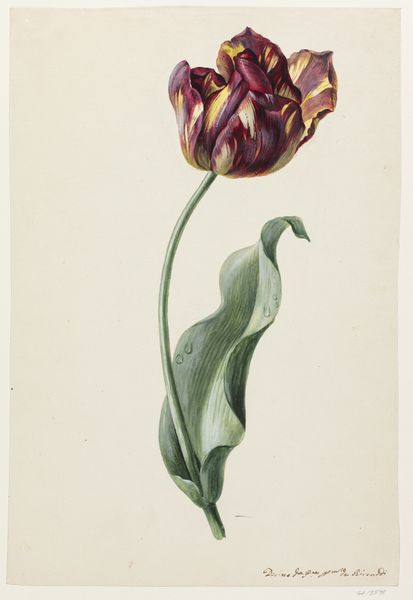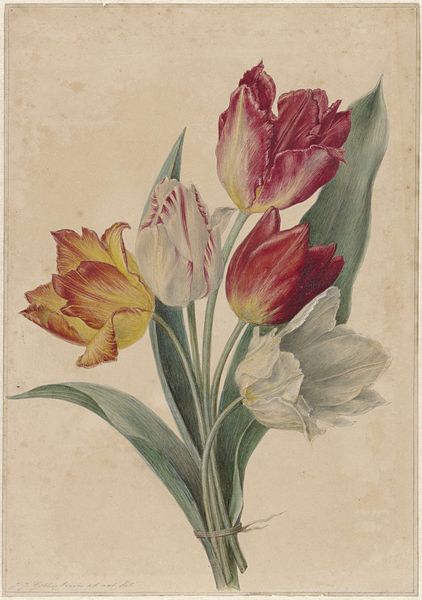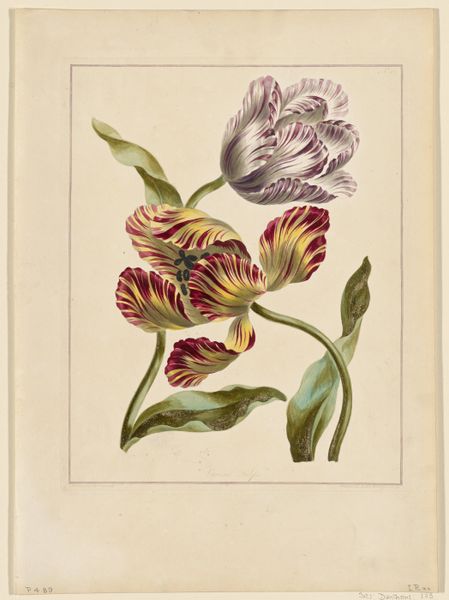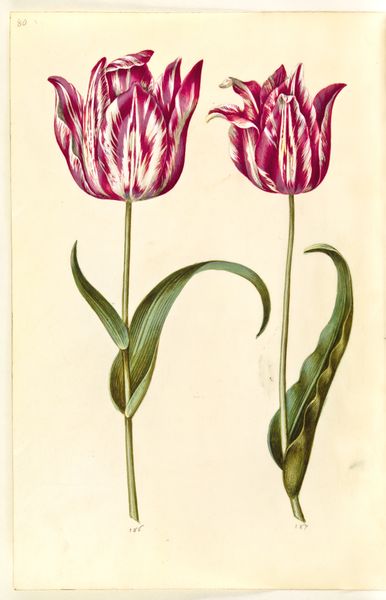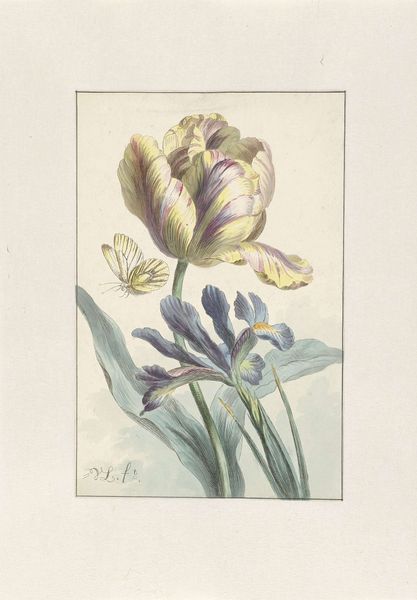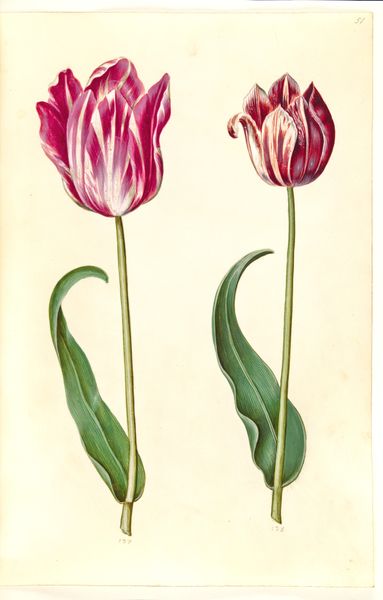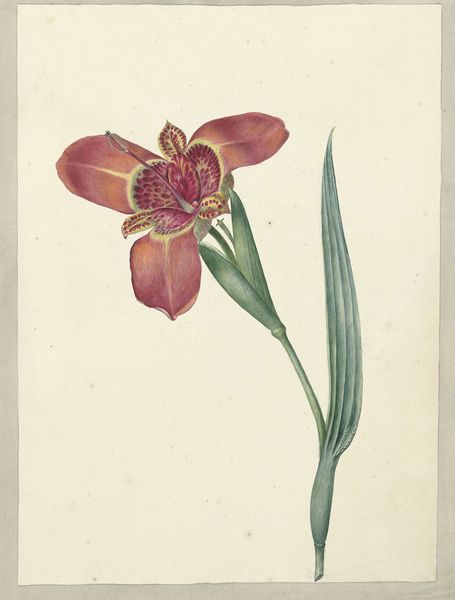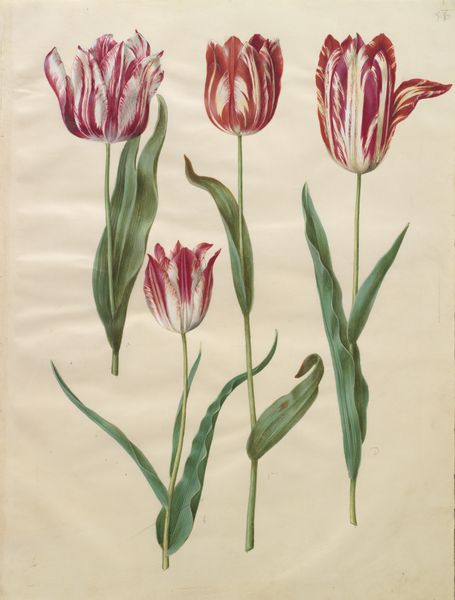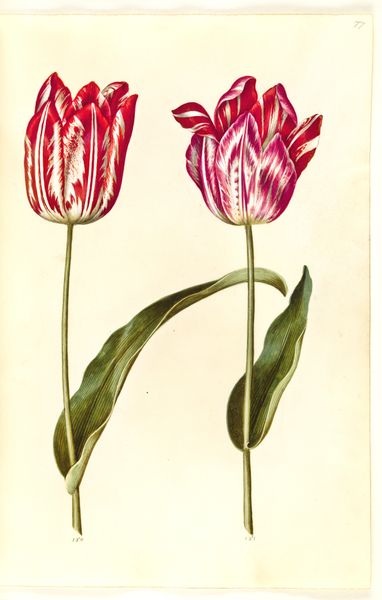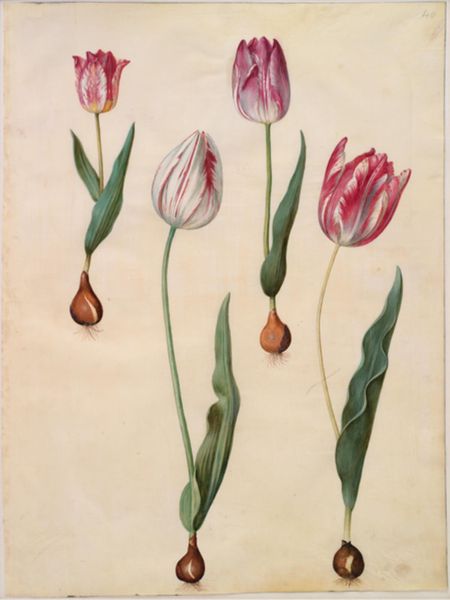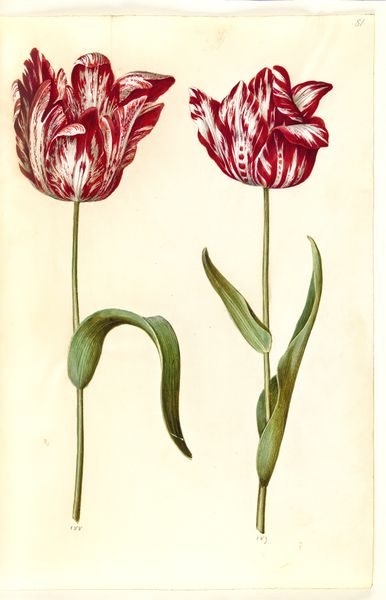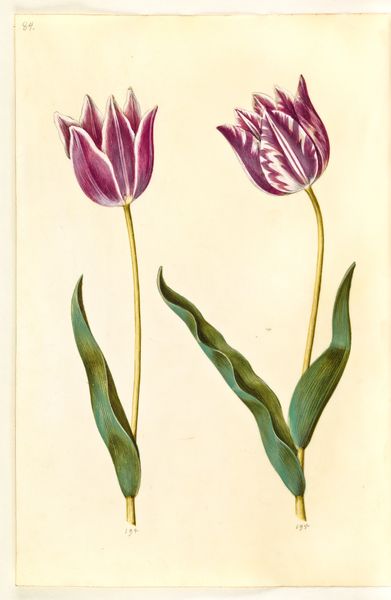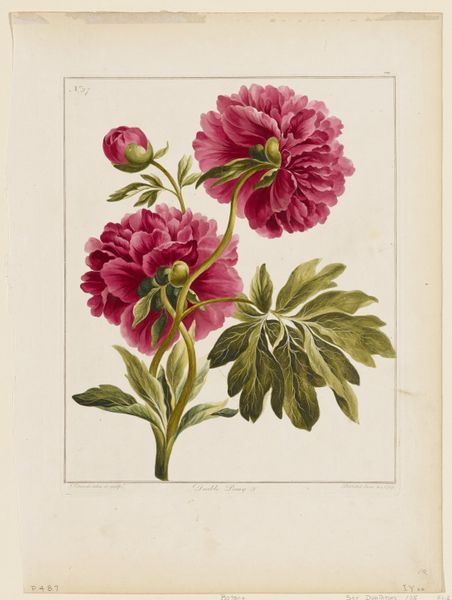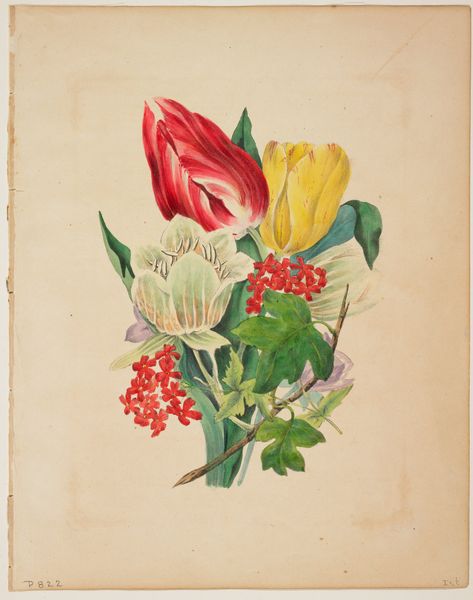
painting, print, watercolor
#
painting
# print
#
oil painting
#
watercolor
#
romanticism
#
watercolour illustration
Dimensions: 19 1/2 x 13 1/2 in. (49.53 x 34.29 cm) (sheet)
Copyright: Public Domain
Editor: Here we have "Tulips," a watercolor and oil painting, created sometime between 1815 and 1854 by Eugène Anthelme Grobon. There's a quiet formality about these tulips, almost like a botanical record, but the colors feel so romantic, muted and soft. What strikes you most when you look at this piece? Curator: You know, what sings to me is the dance between precision and passion. It *is* a record, but one rendered with such tender care! These aren't just *any* tulips, these are *Grobon's* tulips, observed through a lens of maybe slight melancholy, and rendered in hushed tones. See how he lets the watercolor bleed at the edges? As if they're exhaling a secret? Editor: I see what you mean, it’s controlled but there's still a freeness in the execution. It's interesting to think of botanical art as being so…personal. Curator: Exactly! It’s tempting to just see scientific accuracy, but look closer. The composition, the way he stages these blooms…he’s conducting an emotional orchestra right before our eyes! Do you get a sense of that? Like, how vulnerable a flower truly is, even with such vibrant colors? Editor: Absolutely, that makes perfect sense now! It goes beyond a mere representation and enters a realm of...evoking their fragile existence. Almost makes you want to write poetry about them, doesn't it? Curator: Ah, that's it! We are forever changed, because we look through Grobon's lens. Editor: Thanks, this gave me so much more to think about when viewing botanical art. I will surely have something profound to say to my fellow classmates!
Comments
minneapolisinstituteofart about 2 years ago
⋮
Botanical illustrators working in the fifteenth and sixteenth centuries devoted themselves to the medicinal qualities of plants and sought to render plant structure and function as precisely as they could. Later, European explorers brought specimens back from exotic locales, and artists carefully reproduced them for an audience fascinated by new discoveries. By the eighteenth and nineteenth centuries, artists had shifted their emphasis from scientific illustration to the innate beauty of the plant or flower. The Minneapolis Institute of Arts is fortunate to possess an impressive collection of more than 2,000 botanical prints and drawings.
Join the conversation
Join millions of artists and users on Artera today and experience the ultimate creative platform.
